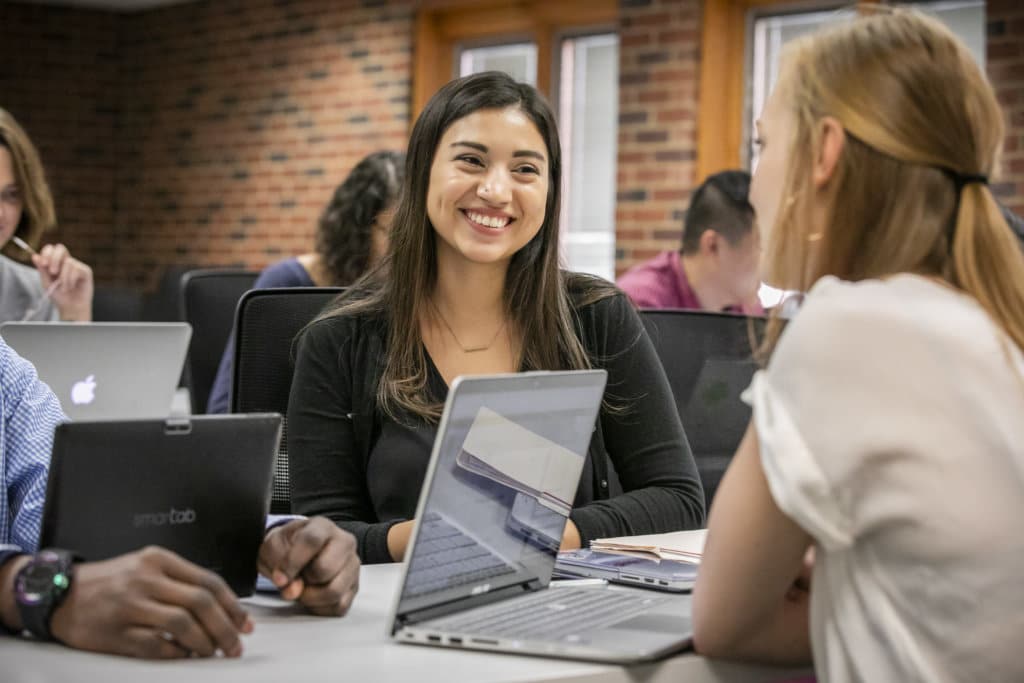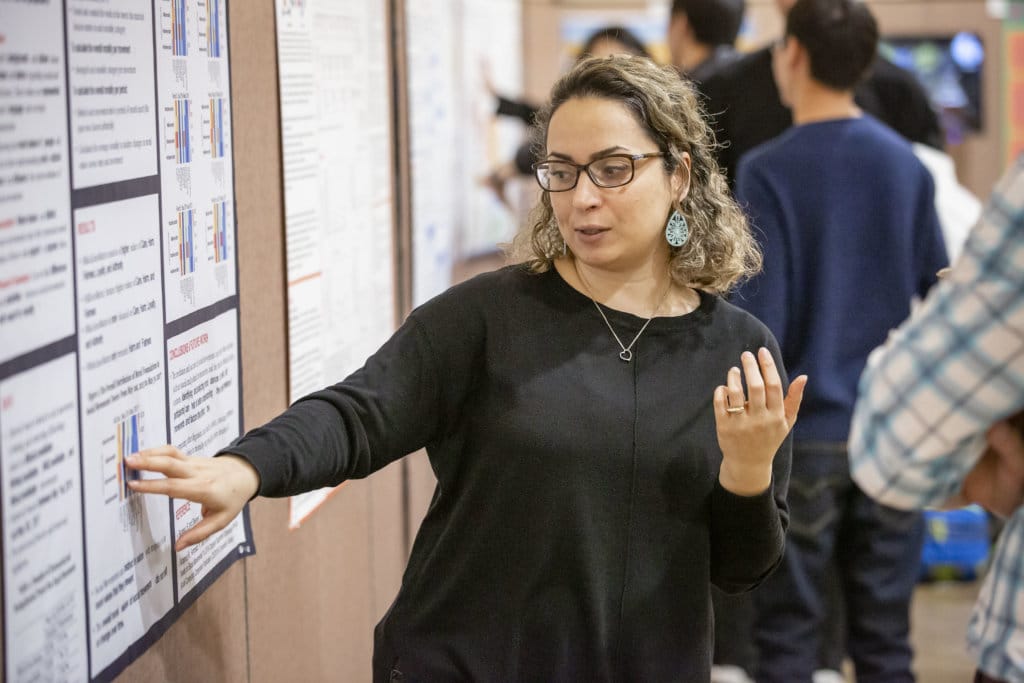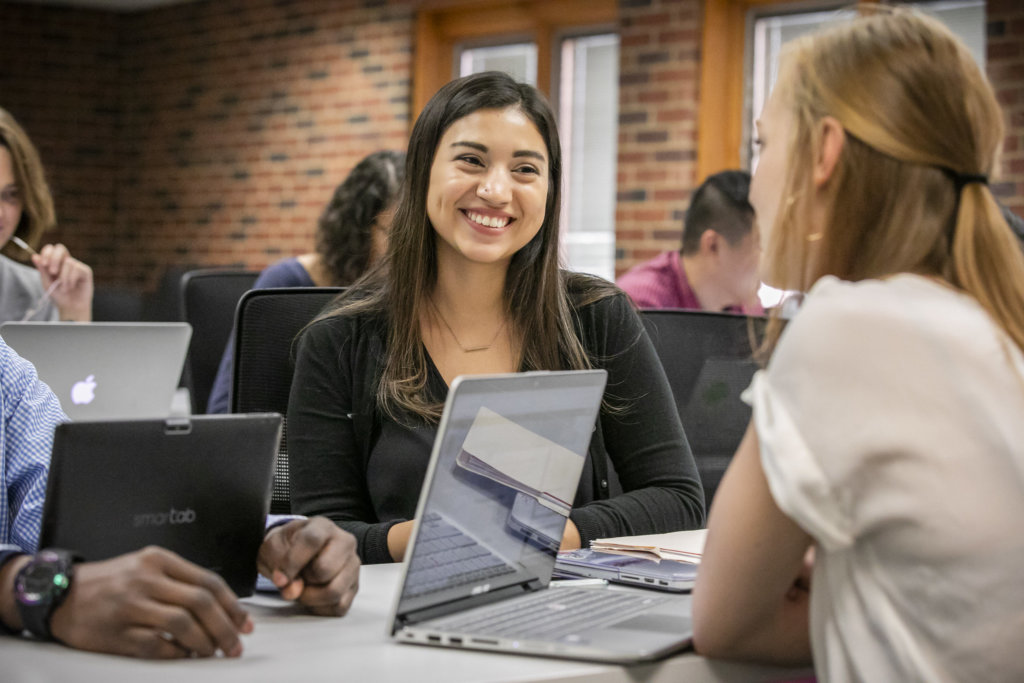Helping create a more sustainable future today, especially with the effects of climate change, takes a lot of work and isn’t easy. The Department of Agricultural and Biological Engineering (ABE) at the University of Illinois at Urbana-Champaign, however, is up for the task.
ABE’s unique mission of combining fundamental engineering skills with food, agriculture, environment, and energy training has made the department renowned among industry leaders and experts. It is also known for its well-prepared graduates who excel in the workforce.
“Digital Agriculture is a quickly growing field and a surplus of jobs awaits professionals with a distinctive interdisciplinary combination of skills and backgrounds from agriculture and computer science,” says ABE Department Head and Professor Ronaldo Maghirang. “These career opportunities are projected to grow as agriculture companies advance and bring more technology into their practices.”
This is something that Dr. Paul Davidson unlocked at ABE. Growing up on a small farm in Southern Illinois, he developed a keen interest in all things agriculture and STEM-related subjects. After high school, Davidson began his journey by completing an associate degree from Olney Central College before arriving at UIUC. Here, he earned his BS, MS, and PhD degrees in Agricultural and Biological Engineering at ABE.
As an ABE graduate, Davidson stood out in a highly competitive market, something he credits the university for. After completing his PhD at UIUC, he worked as an environmental consultant for four years with Waterborne Environmental, Inc, before returning to ABE and teaching the same programmes he took, focusing on water resources and project management.
Today, he is passionate about helping students explore, research, and make the most out of their upskilling and reskilling journey here. Davidson serves as the advisor for the Professional Science Master’s in Engineering Technology & Management for Agricultural Systems. It equips students with a solid foundation of engineering principles, the technology used, and the integration of business concepts in these industries.
Graduates have promising career opportunities, both in technical and leadership roles. “Combining science and business coursework provides a robust experience for students,” Davidson says. “The culmination of both gives students the flexibility to tailor their coursework to their career aspirations.”

The ABE department prepares students to address critical challenges within the agriculture sector. Source: University of Illinois at Urbana-Champaign
Having an idea of what you want your future to look like is always a good idea. If bio-based products and energy are more up your lane, then the Professional Science Master’s in Bioprocessing and Bioenergy is ideal. Students can learn from and with world-renowned scientists and researchers in both academia and industry to develop new technologies. And what’s better is you will have access to the Integrated Bioprocessing Research Laboratory (IBRL), a state-of-the-art pilot facility at UIUC.
“The combination of business skills and a deeper scientific skillset is invaluable to students when they transition to industry,” says Dr. Beth Conerty. Her journey also tells of a success story, starting at ABE as a young student to now teaching at the front of the class.
Having completed a PSM in Bioprocessing and Bioenergy, she then earned her PhD in Energy Science and Engineering while interning at the Office of Industrial Partnerships and Economic Development at Oak Ridge National Laboratory (ORNL).
“Towards the end of 2017, the IBRL had completed construction, and they needed someone to do business development,” she says. Part of the role was to advise the PSM Bioprocessing and Bioenergy programme, and she jumped at it. Conerty is particularly fond of the IBRL because experiential learning is emphasised.

Teachers provide adequate support and guidance, ensuring students are well-prepared for future jobs. Source: University of Illinois at Urbana-Champaign
“IBRL gives students real-world experience; equipment operation and project execution show students how course material applies in the real world,” she says. Conerty is a big fan of how balanced the programme is and how students can benefit because of it. “Their knowledge of industrially relevant equipment is uncommon among recent graduates, and this skill sets them apart in job applications.”
If you have been reading all this so far and are wondering whether you can get these qualifications remotely, it is possible. UIUC offers an online, non-thesis Master of Engineering (MEng) in Digital Agriculture. It is the first interdisciplinary degree programme specialising in digital agriculture with a partnership between Agricultural and Biological Engineering, Center for Digital Agriculture, Crop Sciences, and Computer Science. It builds on the groundwork of other programmes, focusing on training and application of technology in digital agriculture.
This field is quickly growing as we try to produce enough food to feed an ever-growing population sustainably and efficiently. Projections from the US Department of Agriculture estimate 27% of agriculture job opportunities are related to the technology, science, engineering, and mathematics areas of agriculture. In the 2021 AI Index report, agriculture was ranked in the top three for job postings in AI. “The Digital Agriculture curriculum is designed to provide working professionals with skills to become competitive for a career in these areas,” says Dr. Christina Tucker, assistant director of programmes. “The master’s programme provides comprehensive skills across the full domain and the certificates provide themed skills that can be completed in a shorter amount of time.”
Although online, the programme provides four hours of professional development, a requirement that’s typically completed during the summer. “The professional development can either be a design project from an industry partner or an internship with a company. We will help students find internship placement if they are not already employed full-time,” says Tucker. “Students who want to do the design project can work on a project at their current place of employment or we have projects from Center for Digital Agriculture Industry Partners.”
With seemingly endless opportunities, agricultural enthusiasts looking for careers have much to gain. As for the university itself, it will continue to stand out for various reasons, including its strategic position. Home to innovative research firms like the Illinois Autonomous Farm, the Farm of the Future, Center for Digital Agriculture, and the Artificial Intelligence for Future Agricultural Resilience, Management and Sustainability (AIFARMS), UIUC ensures you are in good hands for a secure future.
Follow the University of Illinois at Urbana-Champaign on Facebook, Instagram, Twitter, and YouTube, and the Department of Agricultural and Biological Engineering on Facebook and Twitter

